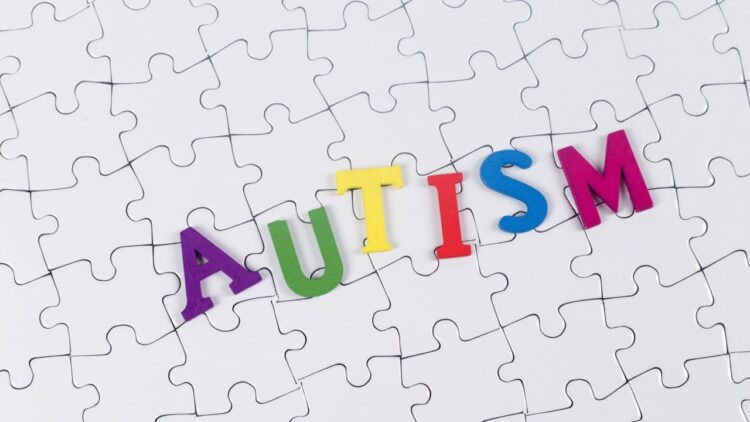Children who have autism tend to struggle with food more than anyone else, and for good reasons too. Some of them have strong preferences for certain items, while others tend to avert specific delicacies due to their taste. Due to this reason, it becomes impossible for them to get an adequate amount of nutrition.
To counter this situation, many parents tend to feed dietary supplements to their kids. Amongst them, one such critical element is the omega-three fatty acid.
But, what is the omega-3 supplement?
How does it work?
Will it be beneficial for your kid?
We have answered all of your concerns regarding the product through our article. Hopefully, you will find the specific set of information you are looking for.
Page Contents
Omega-3 Fatty Acid: A Brief Introduction

Source: europeanscientist.com
Omega-3, as the name implies, is a type of fatty acid nutrient found in fish, seafood, and various supplements. The primary task of the component is to build the walls of your body cells and provide energy to them. Besides, it also takes care of your heart health, immune system, and blood vessels.
The prevalent benefits of omega-3 fatty acid include –
- Lower triglyceride level of your blood.
- Reduce the risk of stroke and heart disease.
- Subdue internal inflammations of your body.
- Developing the brain and cognitive functionality of the fetus.
However, that’s not where it ends, though.
Ingesting omega-3 fatty acids can improve your brain health to some extent too. Move on to the next section to learn more about this aspect.
Benefits Of Omega-3 Fatty Acids For Autistic Patients
The benefits of omega-three fatty acids are pretty wide-ranging when it comes to treating autism. Here’s what you need to know in this regard.
- By intaking omega-3-based supplements, you can improve their mental skills, such as remembering, thinking, and learning, immensely. Therefore, it will become much easier for autistic patients to learn new skills and improve their overall capabilities. It can also reduce the risk of ADHD in people with special needs to some extent.
- Consuming omega-3 supplements regularly can also help in improving the overall blood flow in your brain. This, in turn, can increase the level of oxygen in the organ, thereby enhancing its overall capability three times more. In autistic children, it can aid in performing cognitive tasks and conversing with others efficiently.
- People who have autism also suffer from various memory-related problems. However, if they take omega-3 supplements, their overall memory support will improve to some extent. Therefore, it will be easier for them to remember everything and act accordingly depending on the circumstances.
- Omega-3 fatty acids can also induce a calming effect throughout our body. It, sequentially, can reduce the issue of stress and anxiety in people dealing with autism. This way, various stereotypical habits of the disease, such as hand flapping, rocking incessantly, etc., will be subdued as well.
Source Of Omega-3 Or Fish Oil

Source: healthline.com
Omega-3, as you can guess from its name, can be found in various food items. The following are a few of them –
- Seafood (salmon, mackerel, herring, tuna, sardines, fish oil, etc.)
- Plant oils (soybean oil, flaxseed oil, algal oil, perilla oil, canola oil, etc.)
- Seeds and nuts (chia seeds, flaxseed, walnuts, etc.)
- Fruits (berries, mangoes, muskmelons, avocado, etc.)
- Vegetables (hemp seed, brussels sprout, etc.)
Besides these, you can obviously get the same element from spectrum fish oil supplements such as Simple Spectrum well. However, we would ask you to try avoiding opting for a single route when treating autism in your child.
Frequently Asked Questions
Despite knowing that Omega 3 fatty acid is healthy for the body, lack of evidence makes people question its effects. Here we have picked the top question asked by our readers and have answered to clear a few points.
Q1. Which Omega Is Good For Autism?
Children with autism struggle to get enough nutrients because of their feeding problems. The feeding problem involves aversion to eating certain foods, strong preferences for certain foods, and repetitive behavior around the food.
One of the most common ways for parents to ensure their children get the necessary nutrients is to give them a balanced diet. Adding Omega 3 fatty acids to the diet is considered beneficial to treat autism.
However, the evidence for this is anecdotal with limited studies to prove it.
Q2. Does Fish Oil Help In Speech Delay?
For decades, families and others have been hearing anecdotal reports that having a proper and balanced meal can help people with speech delay. Unfortunately, there are no such studies or reports that support the claim.
However, we do have heard individual stories of the families who feel that the right supplementation has helped them cure delayed speech, in particular Omega 3 fatty acids.
At the same time, we have also heard families reporting no effect. So, it is advisable that you do proper research before coming to any conclusion.
Q3. Does Fish Oil Help With Baby Brain Development?
Fish oil contains Omega 3 fatty acid. It plays a vital role in fetal growth and development. In the utero exposure Omega3 fatty acid is dependent on maternal nutrition. There have been several studies that prove that prenatal fish oil supplements have a positive impact on a child’s neurodevelopment.
Researchers have found that infants born to mothers with high blood blood levels of Omega 3 fatty acid DHA. During the first six month of observations, these infants were two months ahead of the infants born to mothers with lower DHA levels.
Final Thoughts

Source: additudemag.com
Treating autism can be a tricky task, especially for a parent. You have to deal with the behavioral issues, take care of their mood, communicate with them properly, and much more.
Due to this reason, many people consider providing supplements to be the best option over restructuring the diet plan. Well. . . it is the right idea to some extent, as you don’t have to deal with the tantrums of your kid anymore.
However, we’d still ask you to create a proper diet structure for your kids by collaborating with a nutritionist. This way, you can sustain their health long-term and offer the right amount of nutrition from almost every aspect.





